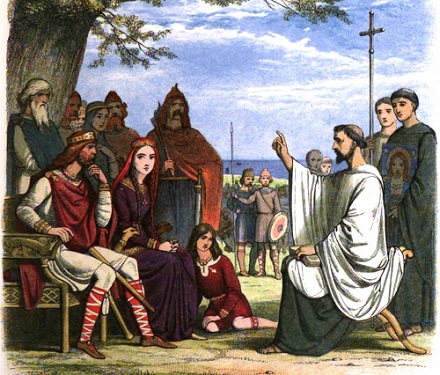
It is always worth remembering how Christianity reformed Western culture – especially during the Christmas season, when we meditate on how Christ refashioned human nature to be a fitting abode of the divine nature. From teaching – and in some cases, inventing written languages – to preserving ancient manuscripts, to founding the university system, it would be impossible to imagine Western civilization without Christianity’s contributions. With this in mind, textbooks once referred to the West merely as “Christendom.” But a new book has won a wide audience by presenting Christianity as history’s greatest annihilator of culture, artwork, learning, and ecumenical understanding.
In The Darkening Age: The Christian Destruction of the Classical World, Catherine Nixey deems early Christians who destroyed pagan temples guilty of “‘the largest destruction of art that human history had ever seen.”
Nixey claims that pagan Roman civilization had been “fundamentally liberal.” This tolerance had been shattered by Christian clerics filled with “suspicion, prejudice, vindictiveness,” and – lest anyone miss the point – “ignorance and sheer stupidity.”
Nixey’s chief accomplishment seems to be exacerbating anti-Christian stereotypes already popular in the West for at least a generation. Fittingly, in his London Times review, Peter Thonemann tells Richard Dawkins, the leading philosopher of the New Atheists, “here is a book to gladden your heart.”
Writing in the New Statesman, Emily Wilson likens Christian martyrs to “later suicide bombers” whose actions are “disturbingly reminiscent of the destruction of cultural heritage sites by Islamic State.”
Wilson deduced that she and the average reader of Nixey’s book were supposed to conclude “in the age of Brexit and Donald Trump, that intolerance, ignorance, and hostility to cultural diversity are sadly nothing new.”
Yet even Wilson finds the book unswervingly negative and one-sided. She notes that Nixey “says nothing” of the fact that “Christianity provided certain advantages and correctives to the hierarchies and inequalities of the later Roman empire.” It also ended the exposure of infants, among other trifles.
However, even conservative publications have accepted the book’s message at face value. Thus, in its review the UK’s premier conservative publication, The Spectator, asserted, “Christianity is a fundamentally masochistic religion.”
Nixey’s book has exercised influence far out of proportion with its historical value, writes Josh Herring in his review for Religion & Liberty Transatlantic. Herring, a humanities instructor at Thales Academy, weighs Nixey’s book in the balance, so to speak:
If correct, Nixey’s arguments merit a reevaluation of the relationship between Christianity and Western civilization. Her arguments, however, are not sound. She bases her conclusions on faulty premises which illustrate a lack of awareness in three areas: Christianity, history, and logic.
Nixey does not understand the rich and varied diversity of early church Christianity, writes Herring. She conflates the actions of lone individuals with “the Church” as a whole. She likewise dismisses all conflicting Christian and pagan claims to exclusively embody the truth. And she judges both Christianity and paganism by modern standards that do not accurately reflect either ancient tradition’s self-understanding.
Ultimately, Herring writes, the book tells the reader more about Nixey than about Christianity’s penchant for cultural destruction or creation:
The scholars she assembles are uniformly opposed to Christianity, presenting it as a destructive force that ended the “merry, jolly days” of pagan festivity. The prose she uses is filled with judgmental adjectives, indicating that she does not trust readers to draw their conclusion from the evidence; we must be told how to feel about the person she describes. Her book was several years in the making, but it does not reflect a clear understanding of Christianity, the complexities of Late Antiquity, or the nuances of historical craft. While this book is sold under the guise of popular history, treat it instead as an insight into how a secular journalist views Christianity in the year of our Lord 2017.
Herring’s review is both a well-written, reasonably presented corrective to those who credulously accept Nixey’s narrative and a scholarly guidebook to the lost art of encountering history on its own terms.
You may read his full review here.
(Photo credit: Public domain.)

